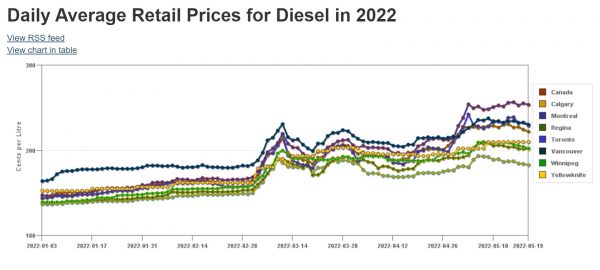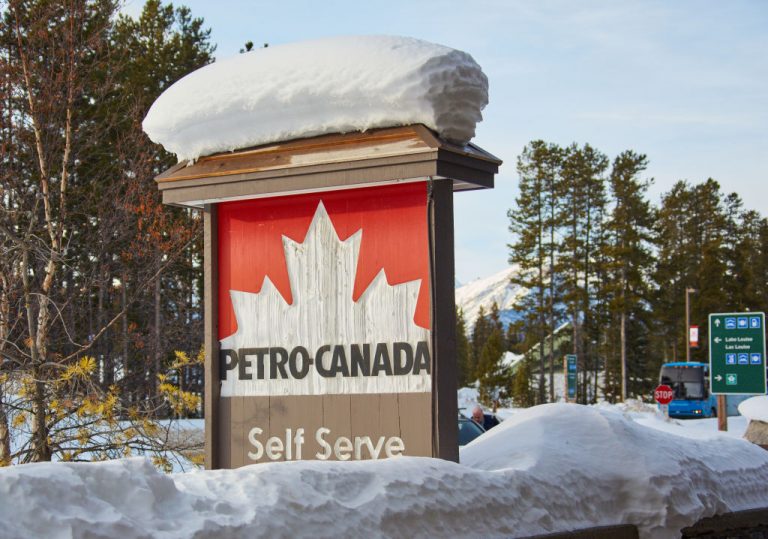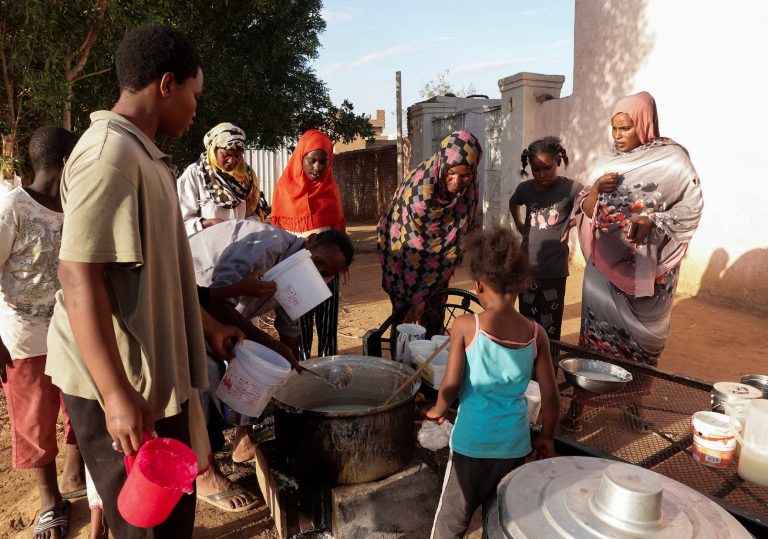The price of diesel in some parts of Canada has hit $10 per gallon, according to government data.
According to the Natural Resources Canada (NRCan) website, among major metropolises, the price of diesel is highest in Montreal at an average price of $2.52 per liter.
At approximately four liters to a U.S. gallon, the price of diesel in Montreal can be considered equivalent to $10.08 per gallon.
With a current exchange rate of $1.28 USD to CAD, diesel will cost an American visiting Montreal $7.85 per gallon in their native currency.
NRCan states that the Canada-wide average price of diesel is $2.22 per liter, with prices posting $2.26 in Toronto and $2.28 in Vancouver.

Success
You are now signed up for our newsletter
Success
Check your email to complete sign up
The lowest price is in Calgary at $1.82 per liter.
An average fuel tank size for a semi of the type seen in the recent Freedom Convoy occupation protests in Ottawa is 150 gallons, with some trucks being equipped with a second tank for long haul purposes.
If a trucker has to fill both tanks in Montreal, they’re looking at footing a bill that would be close to $3,000 CAD.
MORE ON INFLATION AND RECESSION
- The Cost to Hire a Trucker Is Crashing, but It’s the Busiest Time of Year
- Oil Used in Oreos and Toothpaste Becomes 10% More Expensive After Indonesia Bans Exports
- Shrinkflation In Pictures: IKEA Canada’s New Line of Tealights Is 17% Smaller For the Same Great Price
An average fuel economy for a semi is only 6 miles per gallon.
Meanwhile in America, after breaching $5 per gallon in mid March, diesel prices hit a new all time high in May and have continually escalated, ending in a new high of $5.61 for the week of May 16, according to the latest data from the U.S. Energy Information Administration (EIA).
Gasoline prices
Also according to the EIA, gasoline prices in the United States average $4.49 per gallon the week of May 16, up 16 cents per gallon week over week and $1.46 year over year.
The highest average price is in the U.S. West Coast area where gasoline posted an average of $5.36 per gallon, up $1.69 year over year.
Meanwhile in Canada, gas in some provinces is already as high as $9 CAD per gallon.
Data provided by GasBuddy shows that gasoline in the island province of Newfoundland is the highest, sitting at an average price of $2.28 per liter.
In more populous locales such as Ontario, gas is $2.04 per liter. In British Columbia, gas is $2.17 per liter.
BC’s price, notable because it’s the province where Vancouver resides, amounts to $8.71 CAD per gallon, which would work out to $6.79 USD for Americans crossing the border and needing to fill up.
The best price in Canada is in Alberta at $1.69 per liter.
Imports and exports
NRCan states that Canada is tied as the fifth largest producer of crude oil on the planet, accounting for 5 percent of global production, with China.
The United States, Saudi Arabia, and the Russian Federation take top 3, producing 14, 13, and 12 percent of global supplies respectively.
77.5 percent of the country’s oil is produced in the province of Alberta, and 13.7 percent is produced in neighboring Saskatchewan.
Overall, Canada produces approximately 3.8 million barrels of oil per day.
NRCan adds that Canada is a “significant” net exporter of crude, but does not cite data any newer than 2014.
Additionally, several links to data are broken on the Federal Government website.
A second page on the NRCan site admits that Canada is the third largest store of proven oil reserves on the planet with 10.3 percent. Venezuela and Saudi Arabia take the top spots at 18 and 16.1 percent respectively.
However, the Trudeau Administration again does not cite data any newer than 2014.
















